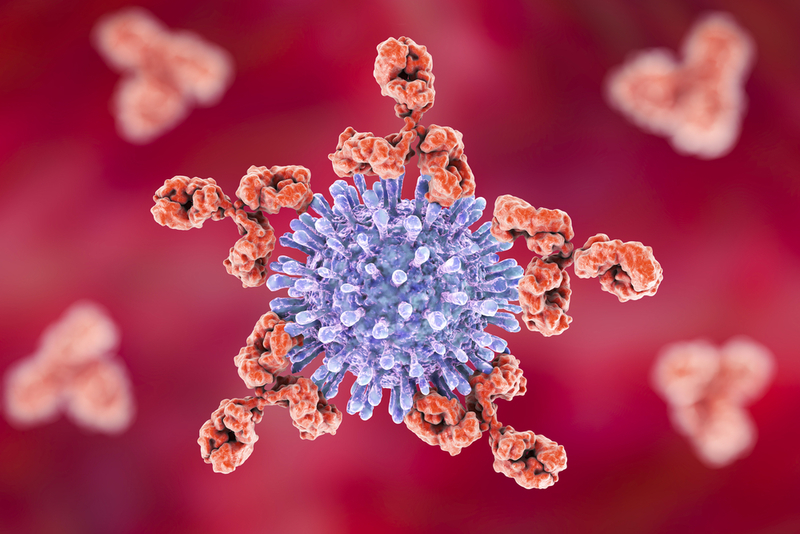Neutralising antibodies offers hope for HIV vaccine
IANS Sep 12, 2018
Researchers are in the process of discovering the factors responsible for the production of antibodies that do not just fight one virus strain, but neutralises almost all known virus strains.

This kind of neutralising antibodies are produced by a small number of people who are infected with HIV-1. Previously, the team led by the University of Zurich (UZH) and University Hospital Zurich (USZ), discovered that the virus load and the diversity of the viruses, the duration of the infection, and the ethnicity of the affected person can all influence the body's immune response.
In the new study, another factor was identified: The genome of the HI virus, said Huldrych Gunthard, Deputy Director at the USZ. For the study, appearing in the journal Nature, the team included data and biobanked blood samples of around 4,500 HIV-infected people.
They found 303 potential transmission pairs -- i.e. pairs of patients for whom the similarity of the viruses' genomic RNA indicated that they were probably infected with the same virus strain. "By comparing the immune response of these pairs of patients, we were able to show that the HI virus itself has an influence on the extent and specificity of the antibody reactions," explained lead author Roger Kouyos, at the USZ.
Antibodies acting against HIV bind to proteins were found on the surface of the virus. These envelope proteins differ according to virus strain and subtype, the researchers said. They therefore examined more closely a patient pair with very similar virus genomes and at the same time very strong activity of broadly neutralising antibodies.
"We discovered that there must be a special envelope protein that causes an efficient defense," explained Alexandra Trkola, virologist and head of the Institute of Medical Virology at UZH. In order to be able to develop an effective vaccine against HIV-1, it is necessary to pinpoint the envelope proteins and virus strains that lead to the formation of broadly acting antibodies. It is therefore planned to widen the search. "We have found one candidate. Based on that, we now want to begin developing an immunogen ourselves," Trkola said.
-
Exclusive Write-ups & Webinars by KOLs
-
Daily Quiz by specialty
-
Paid Market Research Surveys
-
Case discussions, News & Journals' summaries